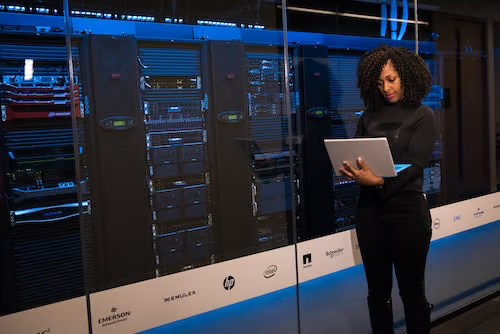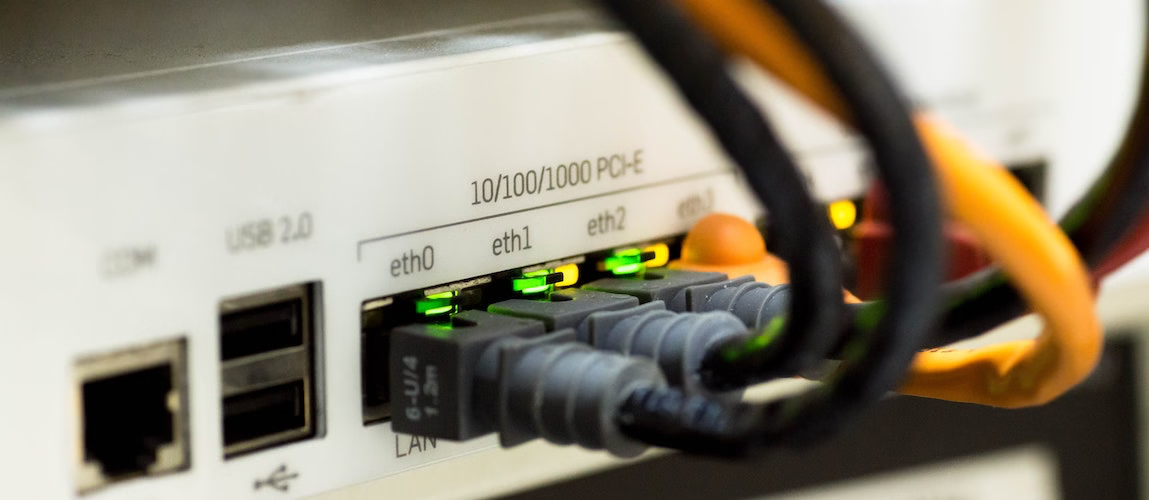Internet's Rich History
The Internet's rich history started with a research and development agency, 'The Defense Advanced Research Projects Agency' (DARPA) of the United States Department of Defense.
The Internet's first appellation was Advanced Research Projects Agency Network (ARPANET). It was created at the end 1960s.
We can define ARPANET as the first packet-switched network to have implemented the TCP/IP protocol suite.
It was developed for military purposes. It permitted correspondence between different computers and guaranteed that the U.S. government could keep a fail-safe communication medium if a nuclear attack ensued.
Over the years, the Internet progressed and expanded, becoming an essential part of modern society. In the 1980s, the introduction of the World Wide Web marked a significant turning point for humanity.
Through what is known as the communications protocol FTP, SMPT, and HTTP, users were now able, in an efficient manner, to leverage packet-switched network TCP/IP for the creation and sharing of information globally. Internet-based informing, virtual entertainment, and video conferencing, the Internet has permitted us to speak with others all over the planet progressively.
As the Internet has become more open and simpler to utilize, it has likewise become a fundamental tool ingrained in our modern cultures. It has changed the way we interact with each other, consume media, and access information.
It has also created new opportunities for an association, enabling people worldwide to collaborate on projects and ideas.
Today, the Internet continues to grow and shape our lives in new ways. It has become essential to our everyday lives and changed how we associate, interact, and cooperate with one another.

How Does the Internet Impact Our Culture?
Before the invention of the Internet, people entertained themselves in various ways depending on their interests and cultural traditions.
Here are some common forms of entertainment that were consumed differently before the Internet:
- Playing board games and card games: Board games and card games were popular entertainment that people could enjoy with family and friends.
- Watching television: Television became a common form of entertainment in the mid-20th century, providing people access to news, sports, and various shows.
- Listening to music: People could listen to music on the radio or through records and tapes.
- Watching movies: Movie theatres allow people to escape reality and enjoy a good film.
The Internet has had an impact on our culture in various ways. One of the most significant impacts is how it has transformed the flow of information.
Before the Internet, information broadcasting was mainly controlled by traditional media outlets, such as newspapers, radio, and television. However, these forms of media had limitations, such as geographical reach and a lack of interactivity.
With the Internet, information flows freely, and anyone can access, create, and share content. This has brought about a democratization of data, permitting people to put themselves out there and offer their thoughts and feelings worldwide.
On a positive note, online news sources and social media platforms have become popular sources of information, and citizen reporting has become a new form of reporting. However, social media does have its drawbacks. Read more on the negative effects of social media.
In addition to the impact on information flow, the Internet has revolutionized the technological landscape. These technologies have transformed how we live, work, and relate to our environment.
The Internet has also changed human relations. Online technologies like email, instant messaging, and VoIP have facilitated instant communication with people from various societies.
This has created new opportunities for collaboration, learning, and cultural exchange. In addition, online communities have also emerged, providing people with unique digital social spaces where they can connect based on shared interests or experiences.

How Email Works on the Internet?
Email, which stands for 'electronic mail', was one of the initial forms of communication on the Internet. As a result, email was a catalyst for mass internet adoption.
It utilizes a communication protocol called Simple Mail Transfer Protocol (SMTP) that runs on top of the packet-switched network TCP/IP protocol suite.
Ray Tomlinson, a computer engineer, implemented the first email program in 1971 while working on the ARPANET project.
Tomlinson developed a system that allowed users to send messages between different computers on the network, which was the first instance of email.
Over time, email became an essential tool for personal and professional communication. It enabled users to send messages instantly and securely, removing the need for traditional mail services. As email became more popular, it also evolved to include features such as attachments, multimedia content, and encryption for added security.
The widespread adoption of email has had significant implications for legacy mail services regarding logistics.
Customary mail administrations, like postal administrations, have decreased in popularity. This is because we have transitioned to now where individuals depend on computerized correspondence. This shift has forced postal services to adapt operations. Thus they now focus on package delivery services.
The decline in physical mail volume has also had environmental benefits. With fewer paper documents being mailed, the demand for paper has decreased, resulting in less deforestation and carbon emissions associated with paper production and transportation. Read more on Global Warming as of Today in this blog.

What Does a Fax Machine Do?
A fax machine is a device that transmits documents by converting them into electronic signals and sending them over a telephone line.
It was a widespread communication and document-sharing method in the pre-Internet era. However, the Internet has primarily replaced fax
machines as a more efficient means of document transmission, thanks to email and file-sharing services (FTP).
Some industries still use fax machines due to regulatory requirements or legacy infrastructure, but their importance has waned with the rise of digital communication. Read more about the fax machine and history.

How has the Internet Changed the Nature of Doing Business?
The Internet has had a significant impact on the way businesses operate and market themselves. Traditional marketing methods, such as print, radio, and television advertising, needed to be expanded to target specific audiences and track results.
With the arrival of digital marketing, businesses now have access to various tools and channels to promote their products or services online. Read on the tenets to making money online.
With the adoption of search engine applications developed for web browsers, a new digital marketing strategy saw a rise. SEO involves enhancing a website's content and structure to improve its ranking in search engine results pages. Therefore creates more leads.
Social media paid to advertising is also a new way of marketing in this new paradigm. PPC (pay-per-click) advertising allows businesses to display targeted ads to potential customers and get charged only when someone clicks on their ad.
Content marketing includes creating and sharing valuable content, such as blog posts, videos, and infographics, to charm and engage with an audience.
With the proliferation of online payment processors such as PayPal, the Internet has also transformed E-commerce.
Online shopping has become a popular way for consumers to purchase products and services, with businesses setting up online stores to cater to this demand.
Internet businesses like Amazon and Shopify have made it more straightforward for organizations to operate their web-based stores. At the same time, complementary online tools permit them to analyze items and costs effectively.
Overall, the Internet has revolutionized how businesses operate and market themselves, providing various digital marketing tools to reach a wider audience and drive sales. E-commerce has also offered greater convenience and choice for sellers and customers.

